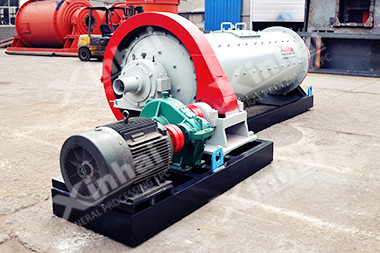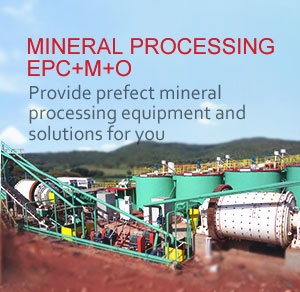- Home
- About
-
Mineral Processing EPC+M+O

Providing optimized solutions for your mine, one-stop service for mineral processing plant!
View details -
Product
- Grinding
- Classifying
Grinding & Classifying
- Flotation
- Gravity Separation Equipment
- Magnetic Equipment
- Gold Extraction Equipment
- Washing Equipment
Separating Process
- Thickening
- Dewatering Machine
Thickening & Dewatering
- Accessories
- Auxiliary Product
Consumables

Xinhai mineral processing equipment mainly include: grinding equipment, flotation equipment, dewatering equipment, magnetic separation equipment, and so on. Some of the equipment is Xinhai independent research and development, and has been awarded national patent. View details
-
Solutions
- Gold Tailings
- Tailings
Tailings

Gold CIP Production Line adsorbs gold from cyaniding pulp by active carbon including 7 steps: leaching pulp preparation, cyaniding leaching, carbon adsorption, gold loaded carbon desorption, pregnant solution electrodeposit, carbon acid regeneration, leaching pulp. View details
- Case
-
News
- Contact
Home Xinhai News Introduction of common crushing equipment
Introduction of common crushing equipment
2014-10-31 XinHai Views (2982)Along with the development of science and technology, a variety of new high-efficiency crushing equipment mushrooms and has been widely used. However, a jaw crusher, a cone crusher and a gyratory crusher are mainly used for processing metallic ores.
There are various models and specifications for crushers. Maybe a number of customers have little about those. According to that, Xinhai technicians have made detailed introduction for everyone.
The model and specification of crushers should be in line with the characteristics of ores, the scale of beneficiation plant and location, etc. Generally, jaw crushers and gyratory crushers are available for processing mid-harness ores. Gyratory crushers are suitable for large-scale plants which is located in the mountain slope, while jaw crushers are widely used for small plants and ores with more viscous materials. Furthermore, cone crushers are available for mid- and fine crushing and double roll crushers are used sometimes. Impact crushers can be applied to processing those schistose ores with mid-hardness.
A jaw crusher is comprised of two jaw plate. One is a fixed jaw plate that is vertically fixed on the antetheca of the body; the other is a moving jaw plate, forming a crushing cavity with fixed jaw plate. At working, the moving jaw does periodic motion to the fixed jaw surround the eccentric shaft. When it closes, the materials are crushed by the action of squeezing and impact; on the contrary, the crushed materials are discharged by the gravity from the discharge opening.
The crushing cavity of jaw crushers is deep without dead zone, so the feeding capacity and production has been greatly increased, featured by large reduction ratio and uniform particle sizes. Yantai Xinhai jaw crushers have advantages of large production capacity, large ranges of feeding particle sizes, simple and compact structure, reliable operation, easy maintenance and low investments. While it also has disadvantages, such as large noise, large inertia force and small crushing cavity. So the jaw crusher is mainly used for coarse crushing and intermediate crushing of hard blocky materials.
The swing route of cone crusher has important effects on the working performance. When the swing route increases, the feeding compression ratio is increased, the product quality is improved as well as the standard fineness. When the swing route decreases, the quality of crushed products is worsen and the fineness will decrease. Considering the quality, the swing route should adopt maximum value. However, the final crushing and compaction should be avoided.
Impact Crusher
At working, the rotor rotates at high speed driven by the motor. Materials enter the hammer area to be impacted and crushed. Then, they are thrown to the impacting device to take another crushing. After that materials will spring back to hammer impacting area from impact wrist plate for crushing again. When the materials are crushed to the required size, they will be discharged from the outlet. The material's discharging size and shape can be changed through adjusting the gap between impact frame and rotator.
Hammer crushers are available for processing ores into -25mm. Hammer crusher is mainly used in industries such as cement, coal separation, electricity generation, building materials and compound fertilizer, etc.
Mineral Processing EPC
Solutions
CONTACT US
- Tel: 0086 13641173523
- Fax: 0086 10 59621207
- Email: mhxu@xinhaimining.net
© 2017 Shandong Xinhai Mining Technology & Equipment Inc. Technical Support: Beijing Xinhulian Technology Co., Ltd.
Factory Address: No. 188, Xinhai Street, Fushan high-tech industrial development district, Yantai, Shandong, China






